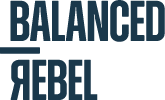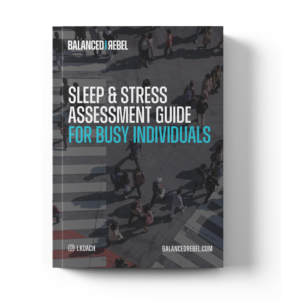Landing your dream job is a thrilling achievement. Visions of career success dance in your head, and a surge of motivation fills your sails. But hold on a second, Captain New Hire! Before you set sail on this exciting adventure, be prepared for a potential storm: fatigue.

Starting a new job, even the most exhilarating one, is a marathon of adjustments. From navigating unfamiliar routines to mastering new skills and building relationships, the initial phase can be a rollercoaster of emotions and demands on your mental and physical energy. It’s no surprise then, that fatigue often sets in, threatening to derail your initial momentum and performance.
But fear not, intrepid explorer! This article equips you with powerful strategies to combat fatigue and ensure a smooth, energized, and high-performing start to your new role.
Understanding the Culprits Behind New Job Fatigue
Fatigue isn’t a one-size-fits-all monster. It arises from a confluence of factors, some readily apparent, others lurking beneath the surface. Let’s identify the key culprits:
- Information Overload: A new job bombards you with information – names, processes, systems, and policies. This constant influx can be mentally draining and lead to decision fatigue.
- Skill Stretching: Stepping into a new role often requires learning new skills or adapting existing ones. This cognitive strain can zap your energy levels.
- Social Navigation: Building new relationships with colleagues, understanding team dynamics, and establishing your place within the company culture add another layer of mental and emotional demand.
- Emotional Rollercoaster: Starting a new job naturally involves a mix of excitement, anxiety, and uncertainty. These fluctuating emotions can be emotionally draining and lead to fatigue.
- Sleep Disruption: Often, new job anxieties translate into disrupted sleep patterns. This lack of restful sleep further fuels the fatigue fire.
- Unrealistic Expectations: Both you and others might have unrealistic expectations about your starting performance. This pressure can lead to stress, burnout, and fatigue.
- Physical Inactivity: Long hours spent getting acclimated to the role, coupled with the stress of a new environment, can lead to a decrease in physical activity – a major contributor to fatigue.
Strategies to Slay the Fatigue Dragon
Now that we’ve unveiled the fatigue culprits, let’s explore some potent strategies to neutralize them and keep your energy levels soaring:
- Prioritize Information Absorption: Don’t try to absorb everything at once. Work with your manager to create a learning plan. Focus on mastering the most crucial information first. Take notes, ask clarifying questions, and don’t be afraid to say “I don’t know.”
- Break Down the Learning Curve: New skills feel overwhelming, but chunking them into smaller, manageable tasks makes them less daunting and less energy-consuming. Celebrate your progress with each mini-milestone achieved.
- Leverage Your Support System: Don’t face this journey alone! Ask your manager, colleagues, or HR for guidance and clarification. Build relationships with other newbies for mutual support and peer-to-peer learning.
- Manage Your Emotions: Acknowledge your emotions and find healthy outlets to manage them. Talking to a trusted friend, practicing relaxation techniques like mindfulness or deep breathing, or engaging in activities you enjoy can all help.
- Prioritize Sleep Hygiene: Create a sleep routine you can stick to, even during this chaotic time. Maintain a consistent sleep schedule, create a relaxing bedtime ritual, and prioritize a sleep-conducive environment.
- Set Realistic Goals: Start with achievable goals that celebrate your progress, not just the final destination. This fosters a sense of accomplishment and prevents the pressure of unrealistic expectations.
- Stay Active: Make physical activity a non-negotiable. A brisk walk during lunch, a yoga session after work, or even just stretching at your desk – every bit counts. Exercise increases energy levels, improves sleep quality, and reduces stress.
- Manage Your Priorities Effectively: Learn to say “no” to additional tasks if your plate is full. Prioritize effectively and delegate tasks when possible. Remember, a high-quality output is more valuable than a rushed one.
- Maintain a Healthy Work-Life Balance: Don’t let work bleed into your personal time. Set clear boundaries and stick to them. Engage in activities you find enjoyable and allow yourself to recharge outside of work.
- Track Your Energy Levels: Pay attention to your body’s signals. Are you feeling drained by certain tasks or interactions? Identify your energy-depleting patterns and adjust your approach accordingly.
Bonus Tip: Consider working with a stress coach! A stress coach can help you identify stress triggers and put in place healthy coping mechanisms to transform stress into a striving force.





